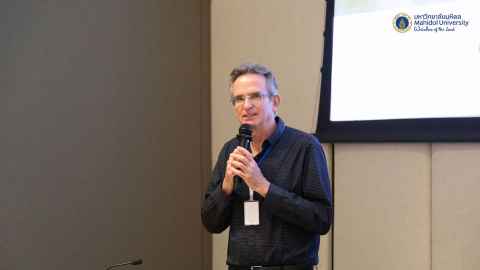Perfect moment to reset tourism in Southeast Asia
19 December 2023
Professor Andreas Neef, from Development Studies in the Faculty of Arts, has led research to support sustainable tourism as visitors return to holiday spots in Southeast Asia.

Could Southeast Asia’s enormous tourism industry be more sustainable and inclusive in a post-Covid era? Do countries in the region have to accept adverse environmental and social impacts from tourism because of its economic contribution?
Andreas Neef, professor of development studies at the University of Auckland, says tourism is vital to the region’s economies. “Before the pandemic – which devastated livelihoods and jobs – it supported more than 20 percent of total GDP and employment in Cambodia, the Philippines and Thailand.”
He said the importance to ASEAN (Association of Southeast Asian Nations) economies had to be balanced against the persistent problems arising from unsustainable tourism, including economic overdependency and exploitation of natural resources and the environment.
Professor Neef was speaking as the co-organiser of a policy round table in Bangkok, Southeast Asian Tourism after Covid-19: Pathways towards Resilience and Sustainability, hosted by Mahidol University and co-funded by the World University Network.
Participants included researchers from nine ASEAN member countries, and representatives of regional tourism and environmental organisations and UN agencies.
Tourism is “bouncing back,” said Associate Professor Jamie Gillen from Global Studies at the University of Auckland, but “an age-old conversation is growth versus protection and sustainability. We are in the perfect moment to rethink tourism and sustainability – what priorities and boundaries should we set?”
New Zealand’s Ministry of Foreign Affairs and Trade has commissioned nine country reports and nine policy briefs within a two-year project, led by researchers at the University of Auckland, which also examined the countries’ pandemic response measures and long-term recovery strategies.
The research team proposed strategies and policies to transform tourism and make it better for people and ecosystems by:
- Diversifying tourism products and greening the tourism economy
- Enhancing the digital transformation of the tourism sector
- Strengthening regional cooperation and participatory multi-stakeholder mechanisms
- Refocusing government support to Micro, Small & Medium Enterprises (MSMEs)
- Retaining, retraining and upskilling formal and informal tourism workers
- Strengthening the sector’s resilience through effective crisis management strategies
Attendees from the Asian Ecotourism Network, the Pacific-Asia Travel Association, the Mekong Tourism Coordinating Office and the United Nations Development Programme heard reports from Brunei Darussalam, Cambodia, Indonesia, Lao PDR, Malaysia, Myanmar, Philippines, Singapore, Thailand and Vietnam about the pandemic’s impact on tourism and societies.
“Tourism income is crucial. Many ASEAN member states are developing countries,” said Dr Walanchalee Wattanacharoensil of Mahidol University.
“We need tourism to be strong, resilient, inclusive and sustainable. If some of the region’s countries can attract higher-quality visitors they could generate the same value to jobs and livelihoods but with fewer tourists and reduce the burden on national resources and tourism environments.”
Media contact
Gilbert Wong | Research communications manager
E: gilbert.wong@auckland.ac.nz
Article republished with the permission of the World University Network.